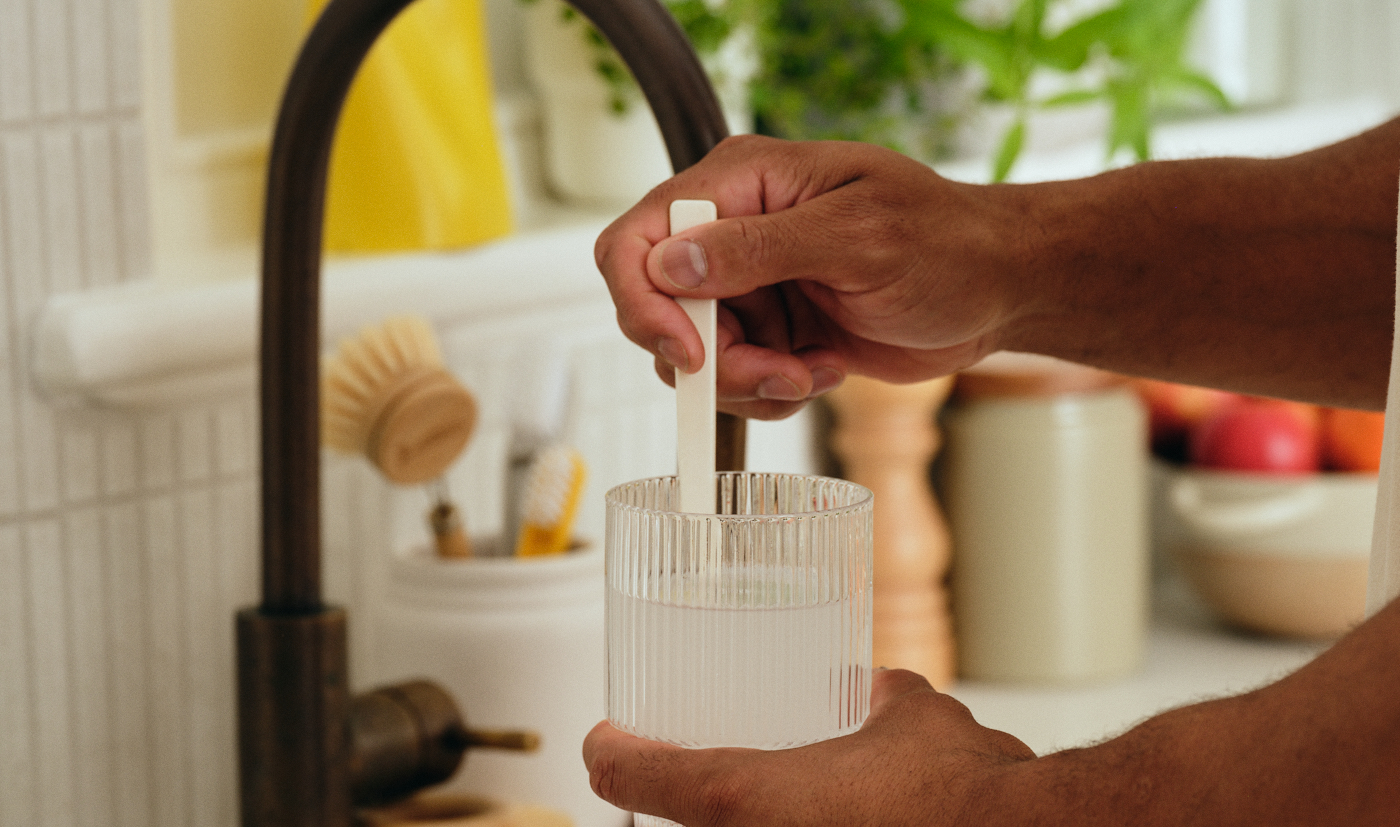Written by Holistic Nutritionist, Rachel Kay
When we talk about skin health and hormones, we often jump straight to skincare routines or supplements. But one of the most overlooked (and underestimated) factors is hydration — not just drinking more water, but actually hydrating your cells in a way your body can use.
If your skin feels dry or inflamed, or your hormones are feeling off, your hydration habits might have more to do with it than you realise.
Skin Health Starts With Hydration
Your skin is your largest organ — and it’s made up of about 64% water. When you’re dehydrated, your body prioritises vital organs like the heart and brain, not your skin. The result? A dull, dry, or tired-looking complexion.
Hydration supports skin health by:
-
Maintaining elasticity: Hydrated skin appears plumper, softening fine lines and giving a firmer, more youthful appearance.
-
Boosting circulation: Water helps blood deliver oxygen and nutrients efficiently, promoting a natural glow.
- Clearing congestion: Good hydration supports your lymphatic system and detox pathways — helping flush out toxins that might otherwise show up as puffiness, breakouts, or inflammation.
It also strengthens your skin barrier, which is especially important if you’re dealing with sensitivity, irritation, or flare-ups.
But here’s the catch — drinking litres of plain water isn’t always the answer. Your body needs electrolytes like sodium, potassium, and magnesium to actually absorb and retain that water. Without them, it just passes through you.
Hormones & Hydration: The Internal Connection
Hormones are chemical messengers that travel through your bloodstream to regulate everything from mood to metabolism. They need adequate fluids to circulate properly — so when hydration is off, hormone signalling can be, too.
Here’s how hydration plays a role:
-
Cortisol balance
Dehydration is a stressor. It can raise cortisol (your stress hormone), which disrupts the balance of other hormones like progesterone, thyroid, and insulin.
-
Thyroid function
The thyroid depends on water and minerals to regulate metabolism. Even mild dehydration can cause fatigue, sluggishness, or low mood.
-
Blood sugar regulation
Proper hydration helps cells stay sensitive to insulin. Dehydration can increase insulin resistance — throwing off oestrogen, androgens, and even contributing to acne or hormonal imbalances.
Signs You Might Be Dehydrated (Even If You Drink Water)
It’s not just about how much you drink — it’s how well your body uses it.
Common signs of suboptimal hydration:
- Dry, flaky, or itchy skin
- Hormonal breakouts (especially premenstrual)
- Fatigue or brain fog
- Mood swings or anxiety
- Headaches or dizziness
- Cravings for salty or sweet foods
- Water retention and bloating
If that sounds familiar, it might be time to look at how you're hydrating — not just how much.
Hydration Tips for Hormonal Balance + Radiant Skin
Hydration works best when you hydrate smarter. Here’s how:
-
Add minerals to your water
A pinch of unrefined salt or a clean electrolyte mix (like Sodii) helps your body absorb and retain the water you're drinking.
-
Eat hydrating foods
Fruits and vegetables like cucumber, watermelon, and leafy greens contain both water and minerals — and they count toward your hydration.
-
Watch caffeine and alcohol
Both are diuretics, meaning they pull water (and minerals) from your system. If you're drinking these regularly, your hydration needs will be higher.
-
Support lymphatic flow
Gentle movement, dry brushing, cold showers, and deep breathing help fluids circulate and drain — keeping your skin clear and hormones humming.
Proper hydration supports your skin from the inside out and keeps your hormones functioning the way they should. If your skin feels off or your energy’s out of balance, don’t underestimate the power of real hydration.
Because it’s not just about drinking more — it’s about giving your body what it truly needs to stay in balance.




